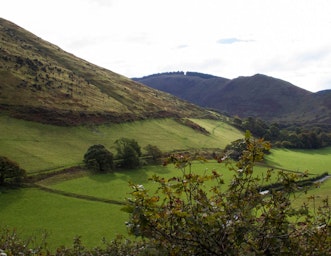
Elections are now clearly on many people’s horizon, and they will be one of the most important democratic choices in our history. On Earth Day, 22 April, Sarah Jenkinson explores how we can ensure climate and nature is on the political agenda.
On 6 May, a series of elections will be taking place. The Scottish Parliament is electing 129 seats, the Welsh Senedd 60 seats and London Assembly 25 seats. In addition, local elections in England will choose thousands of new council members plus directly elected mayors. Here in Wales, it is clear the Welsh Senedd has the power to take action through placing the climate and nature crisis at the centre of its policy decisions.
Turning targets into action
Increasingly people from all walks of life now recognise that humanity is at a critical point in our history, so these elections are one of the most important in a generation. In order to make the changes we know we must achieve within the timescale we have left, we need to call for immediate action from all the political parties that are asking us to vote for them on 6 May.
Signing up to long-term targets, well beyond anyone’s term of office is easy to do, but introducing the real-life policies and changes now that will give society a reasonable chance of achieving those targets is crucial. We need rapid action now, and so must keep challenging anyone standing to be elected to commit to take a lead on that action.
CAT is, as ever, keen to engage across all political parties, offering the positive, practical solutions for rapid decarbonisation across all sectors – energy, buildings, industry, food and land use, and transport.
Multi-solving multiple emergencies
One of the key areas we explore is multi-solving – thinking across silos to reveal the exciting co-benefits in areas such as better air quality, more healthy diets, reduced fuel poverty, increased active mobility, and more and better jobs with a strong sense of purpose.
Like the rest of the UK, Wales is at a critical crossroads in its history and needs to address multiple emergencies – recovery from lockdown, the climate and biodiversity emergency, plus the clear inequalities across society. Of course, some will say that GDP and economic growth should be prioritised, but we know what really matters: people, communities, improving the options for our younger generations, especially creating green jobs, and working to restore nature.
Creating new green jobs
The Institute of Welsh Affairs estimates that over 20,000 jobs could be created annually by switching to 100% renewable electricity alone by 2035. Many more jobs can also be created in strengthening the electricity grid, energy storage and energy management.
The Local Government Association has been exploring the jobs potential for England, estimating that there could be 1.18m jobs in low carbon and renewable energy sectors in England by 2050, with 694,000 of these created by 2030.
Accelerating the pace of change
The pace of change will need to accelerate across the whole UK economy if net zero is to be achieved on time. It will require around 28 million homes and 6 million businesses to change the way they use energy via lighting, microgeneration, and heating systems that significantly reduce carbon emissions.
All of this, including changes to the power system, development of alternative fuels, and low-emission vehicles, must be delivered in just under 30 years.
Recognising that the shift to net zero carbon offers a ‘once in a lifetime’ opportunity for solving a range of other problems is key to building a wider more diverse alliance for action, and we ask all our election candidates to embrace this. Together, we can build an integrated plan, with wisdom and compassion, to tackle the simultaneous crises we face. It’s time to converge solutions!
CAT is a supporting member of the Six Principles, a campaign which asks candidates in the Senedd Election to ‘back’ the Six Principles for Climate and Nature to ensure Wales is a country that is fair and just to everyone, globally responsible and protects future generations.
CAT’s Graduate School of the Environment, short course training and Zero Carbon Britain Hub and Innovation Lab offer the knowledge, skills and experience to help make it happen.
Sarah Jenkinson is CAT’s Head of Policy and Communications.
- Zero Carbon Britain
- Climate Change
- Policy
- News Feed
Related Topics
Email Sign Up
Keep up to date with all the latest activities, events and online resources by signing up to our emails and following us on social media. And if you'd like to get involved and support our work, we'd love to welcome you as a CAT member.



